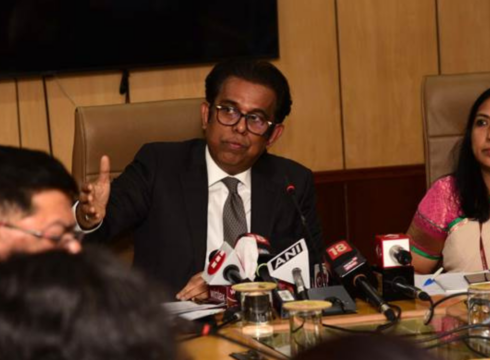The Bureau of Indian Standards will also develop an assessment scheme within 15 days to assess the compliance with the norms
The guidelines will be voluntary for ecommerce platforms at the outset, but could be made mandatory if violations persist
Under the new framework, ecommerce platforms are mandated to develop a code of practice and necessary terms and conditions to curb fake reviews
Inc42 Daily Brief
Stay Ahead With Daily News & Analysis on India’s Tech & Startup Economy
The Centre on Monday (November 21) unveiled the framework to curb deceptive and fake reviews on ecommerce platforms. The guidelines will come into force from November 25.
“The standard is expected to benefit all stakeholders in the ecommerce ecosystem i.e. consumers, e-commerce platforms, sellers etc. It will help usher in confidence among consumers to purchase goods online and help them take better purchase decisions,” the Ministry of Consumer Affairs said in a statement.
The framework was released by Consumer Affairs Secretary Rohit Kumar Singh at a public event, which was also attended by other senior officials of the department and the Bureau of Indian Standards (BIS).
Applicable to all online platforms that publish reviews, the guidelines will initially be voluntary for ecommerce platforms. Singh said that the rules will be made mandatory if violations continue.
Called the ‘Indian Standard (IS) 19000:2022 ‘Online Consumer Reviews – Principles and Requirements for their Collection, Moderation and Publication’, the framework was finalised after 30 days of consultation. It will reportedly also be applicable to social media platforms.
Alongside, the BIS will also develop an assessment scheme within 15 days to assess the compliance of the norms.
The new standards prescribe a slew of responsibilities for authors and administrators of reviews on online platforms. Ecommerce platforms are mandated to develop a code of practice and necessary terms and conditions to curb fake reviews and address allied concerns around accessibility and privacy.
Review administrators are also bound to safeguard personal information and train staff to curb fake reviews on the respective platforms. On the other hand, authors of review will have to provide contact information for verification purposes to check their traceability and genuineness.
The new standards also elaborate on moderation, providing for both automated and manual controls as well as specifics on how to analyse the review content. The new guidelines also spell out considerations such as accuracy of the review, default display and weightage of ratings for the review administrators.
Warning ecommerce platforms, the ministry added that violations of the standards would constitute unfair trade practice and/ or violation of consumer rights. It also said that aggrieved consumers can submit their relevant grievances to the national consumer helpline or the central consumer protection authority (CCPA).
Eye On Ecommerce Platforms
This comes nearly two months after the union government said that it had finalised a framework to prevent fake reviews on ecommerce platforms. Prior to that in June, the Department of Consumer Affairs constituted a committee to develop a framework to check deceptive reviews on ecommerce sites.
The panel held talks with various stakeholders including ecommerce platforms, industry associations, and consumer organisations to arrive at the standards which largely aim to arrest the growing culture of fake reviews on these sites.
Without the tangibility aspect on commerce websites, many users still rely on user reviews to make the purchase decision. In many instances, sellers on these platforms have artificially worked to inflate the reviews to spur sales.
In many cases, it has also emerged that many players indulged in publishing paid and negative reviews against their competitors to offset their sales.
This also comes amidst booming ecommerce sales and droves of new online buyers joining the online shopping bandwagon. Spurred by the pandemic, the ecommerce sector has gained major ground, and is expected to soar to $400 Bn by 2030 in the country.
Note: We at Inc42 take our ethics very seriously. More information about it can be found here.


